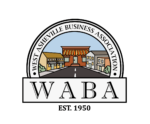Tuesday, August 13, 2013 • 6:30 pm
Hall Fletcher Elementary School in the Little Theater
60 Ridgelawn Avenue
The City of Asheville will kickoff the form based code process for Haywood Road in west Asheville, with a community meeting to be held on Tuesday, August 13 at Hall Fletcher Elementary School in the Little Theater, 60 Ridgelawn Avenue at 6:30 pm. Asheville has recognized since the adoption of the 2025 Comprehensive Plan that the city needs to grow more efficiently and sustainably. That vision requires higher densities and multi-story structures along corridors like Haywood Road that have sufficient roadway infrastructure and lot sizes to handle new growth, and design standards that reflect community goals. With that recognition there is a parallel need to move towards a regulatory framework for development that provides support for growth and business and the walkable, pedestrian-friendly street environment desired by residents and many business owners.
The City Council funded this project because a form based code is an increasingly popular tool being implemented in many cities that produces clear expectations for new development so that developers, property owners, and the community know in advance what the community wants and will accept. The City Council intends the Haywood Road form based code to be a pilot project that will be extended to other corridors in the City in the future.
Form based codes have been discussed for a number of years in Asheville as a planning tool that can replace traditional zoning with its focus on land uses, building setbacks and heights; with more effective development tools designed to enliven the streetscape and make neighborhoods more walkable and economically viable. This is an important tradeoff where additional density is anticipated and desired. In the City’s current zoning ordinance, form based “type” codes are not entirely new. Some zoning districts adopted over the past ten years such as Urban Village and Urban Place zones are examples of a ‘hybrid’ code incorporating form based elements governing placement and development for new buildings along with land uses and other parcel regulations. This emerging hybrid code approach is best represented by the recently adopted Downtown Master Plan and the zoning code created to integrate the plan with zoning requirements for the Central Business District.
“The downtown hybrid code is working well and the opportunity to create a more pure version of form based code was something staff and City Council members were interested in pursuing. Haywood Road was selected because there has been a lot of community planning for this area over the past few years to develop a community vision through the efforts of residents and property owners”, said Judy Daniel, Director of the Planning and Development Department.
The primary focus of the Haywood Road form based code will be the size and some specific details of new buildings and their relationship to the sidewalk and street to help create a welcoming pedestrian oriented public space while encouraging new buildings in scale with the local community and neighborhood. By requiring these standards, new development along the road will help create a “front porch” for Haywood Road that will be an improved asset to the surrounding neighborhoods, while providing increased density and better pedestrian connections.
“This planning process is going to be exciting for West Asheville,” said West Asheville business owner and resident Alice io Oglesby, of io design & illustration. “The community has been working towards a comprehensive planning model for the Haywood Road corridor for some time now and it’s terrific to see this next step getting underway.” The Haywood Road Corridor process is expected to continue through 2013, with a draft form based code being presented before the end of the year.
The City of Asheville has secured the professional assistance of the Code Studio planning firm from Austin, Texas; a national leader in the creation of form based codes for this project. The Code Studio team was selected after a review of proposals from planning consultants across the country. Sasha Vrtunski, a local planner, is partnering with Code Studio to assist with the project. As the project progresses, other team members will step in and provide expertise in transportation and parking solutions (Nelson-Nygaard Associates), building and streetscape design (Third Coast Design Studio) and economic analysis and viability (Noell Consulting Group).
At this first public meeting for the Form Based Code project on Tuesday, August 13, the principal of Code Studio, Lee Einsweiler, will present the form based code process and explain how the community will be involved in the Haywood Road study. For more information email Alan Glines, lead planner for this project, at aglines@ashevillenc.gov or call 828-259-5556.
Share this story to...

